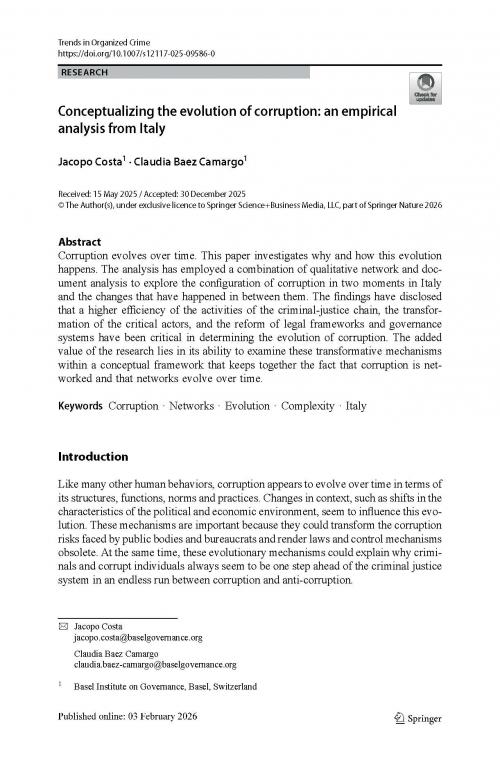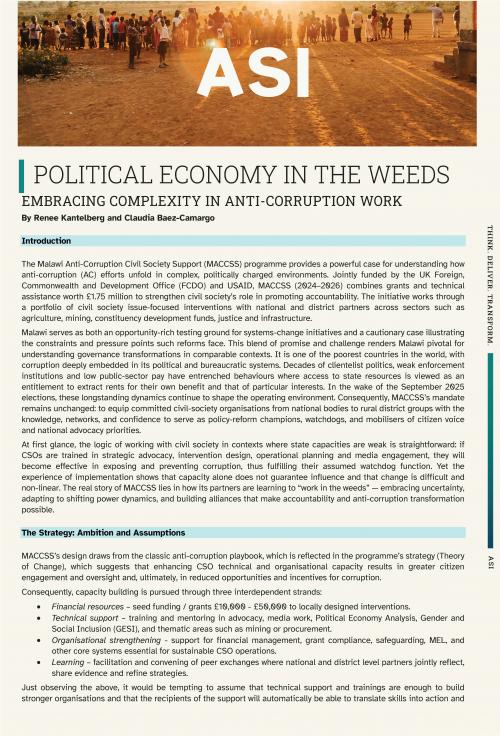Integrity Pacts in Public Procurement: An Implementation Guide
The Integrity Pact (IP) is a powerful tool developed by Transparency International (TI) to help governments, businesses and civil society fight corruption in public contracting. It consists of a process that includes an agreement between a government or government agency (‘the authority’) and all bidders for a public sector contract, setting out rights and obligations to the effect that neither side will pay, offer, demand or accept bribes; nor will bidders collude with competitors to obtain the contract, or bribe representatives of the authority while carrying it out.
An independent monitor who oversees IP implementation and ensures all parties uphold their commitments under the IP brings transparency and invaluable oversight to all stakeholders in a contracting process, from the authority to the public.
The IP process has shown itself to be adaptable to many legal settings. Since its conception, the IP has been used in more than 15 countries worldwide. Being essentially a collaborative tool, it is built on trust and support and is therefore constructive. It also emphasises prevention, and so does not have the side effects of other corruption control tools, which often generate fear and distrust.
IPs help to make projects viable. They are not an end in themselves, but are a means of supporting the appropriate completion of projects crucial for development and the satisfaction of basic needs in society.
Links and other languages




